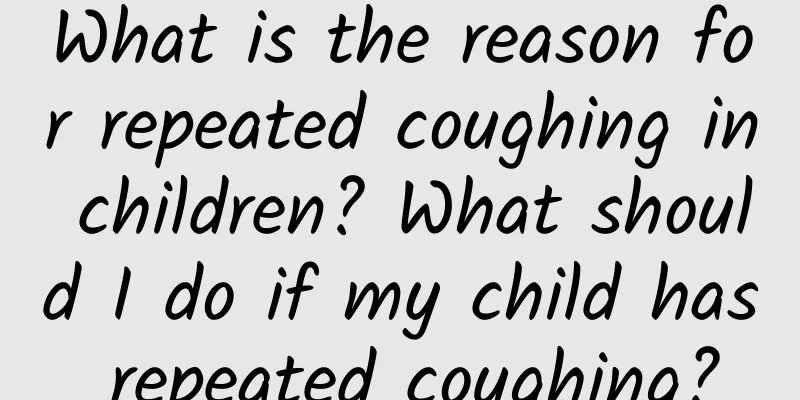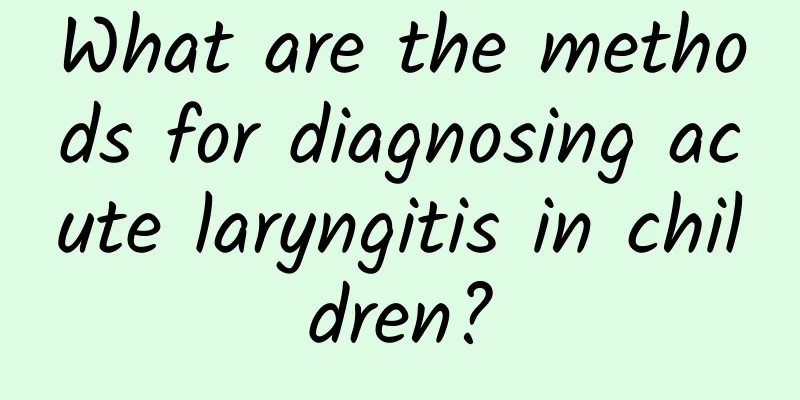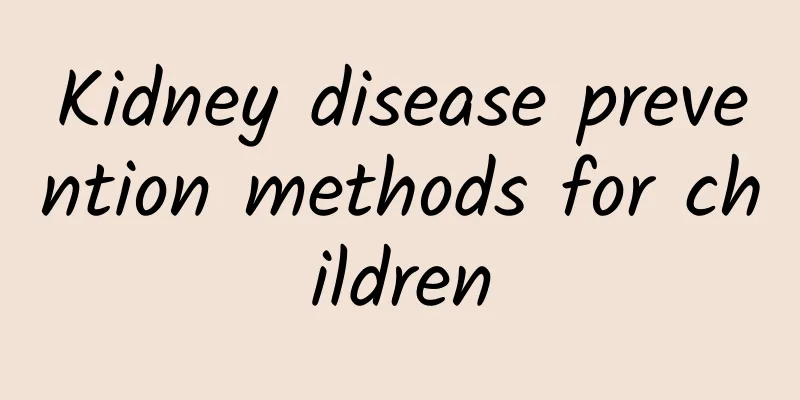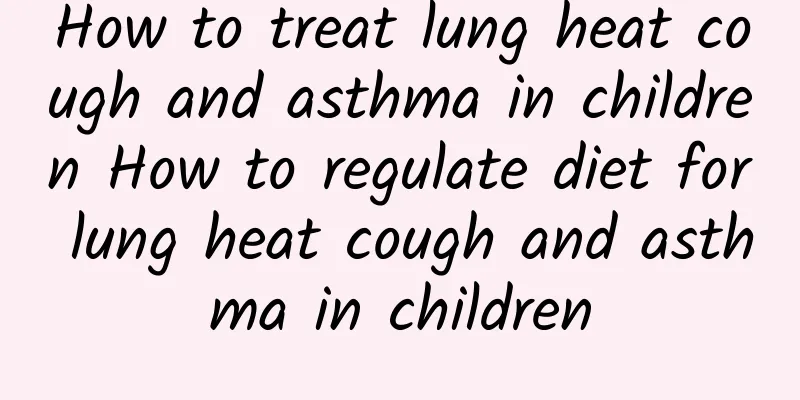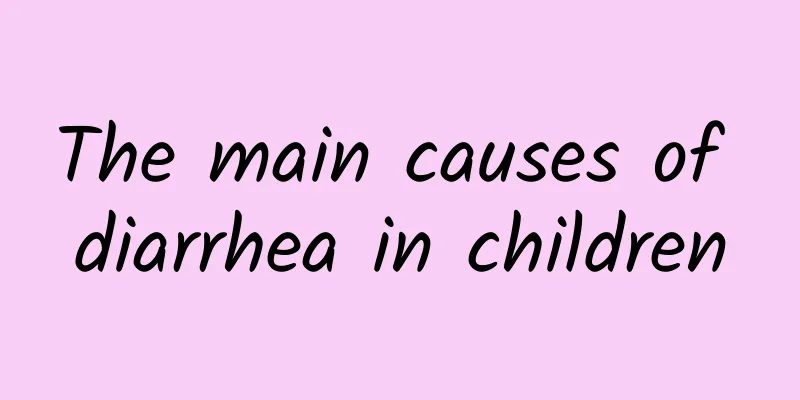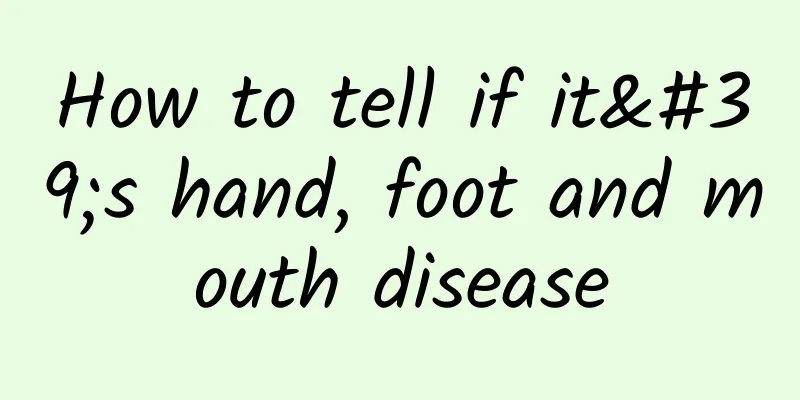How to prevent hand, foot and mouth disease? How is hand, foot and mouth disease transmitted?
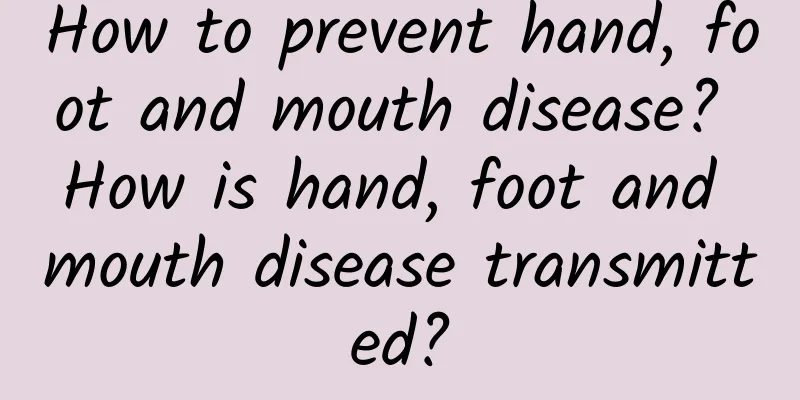
|
Hand, foot and mouth disease is a relatively common disease, and the patients are mainly concentrated in infants and young children, because the main cause is that they do not pay attention to hygiene in daily life, and infants and young children may not have any self-protection awareness, so they are easily infected with bacteria and induce diseases. So, how can we prevent hand, foot and mouth disease in daily life? 1. How did you get the disease? Hand, foot and mouth disease is an infectious disease that can be transmitted by a variety of enteroviruses. It is mainly transmitted through feces, droplets and contact. For example, if a baby does not wash his hands after defecation, it may be transmitted; if a mother handles the baby's feces without washing her hands and then holds the baby, it may also be transmitted; and some elderly people have bad habits, always liking to chew the food themselves before feeding it to the baby, which are all high-risk behaviors for spreading hand, foot and mouth disease. 2. What are the symptoms? Hand, foot and mouth disease generally causes skin herpes on the hands, feet, mouth and buttocks, accompanied by fever. However, in rare cases, these symptoms may not occur. 3. Is hand, foot and mouth disease dangerous? Hand, foot and mouth disease is divided into two categories: mild and severe. Statistically, mild hand, foot and mouth disease generally accounts for the vast majority. Here, mothers should remember that if the virus that infects the baby with hand, foot and mouth disease is called "EV71", then the possibility of severe hand, foot and mouth disease will be much greater. Mild hand, foot and mouth disease only needs to reduce fever. In addition to taking antipyretic drugs, no other medicine is needed (there is no medicine to treat it), and it will heal on its own; severe hand, foot and mouth disease is very dangerous and must be hospitalized for treatment, otherwise it is life-threatening. 4. Symptoms of severe hand, foot and mouth disease If the following four situations occur, the baby may have severe hand, foot and mouth disease and needs to go to the hospital immediately: (1) A high fever persists for two or three days (2) Fever accompanied by vomiting (3) The baby is obviously listless and drowsy, and it is obvious that this is not normal sleepiness. (4) The baby's hands and feet are twitching, or the body is weak, or the neck is stiff 5. Treatment of mild hand, foot and mouth disease Mild cases of hand, foot and mouth disease can be treated at home by taking antipyretics and observing the baby. There is no drug treatment. The baby will recover on his own in about a week. 6. Avoid hand, foot and mouth disease To avoid hand, foot and mouth disease, you need to do the following 5 things: (1) The most important thing is to wash your hands frequently!!! Wash your hands for your baby, wash your hands for parents, and wash your hands frequently! (2) Family members should develop good personal hygiene habits, keep the indoor environment clean and ventilate frequently. (3) Let your baby spend more time outdoors in the sun, and hang clothes out to dry after washing. (4) Boil the water you drink and eat cooked food as much as possible. (5) If there is a baby with hand, foot and mouth disease in the community, avoid contact (if your baby has hand, foot and mouth disease, do not go out). If you suspect your baby has hand, foot and mouth disease, go to the hospital for a checkup. If the doctor requires hospitalization, if it is a severe case of hand, foot and mouth disease, you should be hospitalized; if the doctor only prescribes ribavirin or some Chinese medicine for you to go home for care, it is generally a mild case of hand, foot and mouth disease, you can go home for care, and do not take ribavirin and those Chinese medicines. Because those medicines are completely useless for the baby's hand, foot and mouth disease, they are just to comfort you, the mother. Mothers should not be afraid of "hand, foot and mouth disease"; most of the cases are mild and not scary, and the baby will get better on its own; do not abuse medicine for mild hand, foot and mouth disease; pay close attention to the signs of severe hand, foot and mouth disease; do a good job of preventing hand, foot and mouth disease! 7. Early symptoms of hand, foot and mouth disease 1. Incubation period The onset of hand, foot and mouth disease generally has an incubation period of 3-5 days. During the incubation period, many children with poor resistance will not get sick and have no obvious symptoms. They can usually overcome it on their own. However, children with poor resistance may quickly become ill during the following period. 2. Fever symptoms Children with poor resistance will have fever symptoms in the early stages of hand, foot and mouth disease infection, usually with a high and persistent body temperature. 3. Cold-like symptoms Hand, foot and mouth disease usually presents with cold-like symptoms in the early stages, with children suffering from headaches, coughs, runny noses, etc. As the disease progresses and the course of the disease increases, the symptoms will become more and more severe. 4. Red papules Children who are sick may develop small red papules on their oral mucosa, lips, palms, soles of feet, buttocks, etc. within 1-2 days of fever, which may then develop into small blisters containing turbid fluid. 5. Crying for unknown reasons Due to the high fever and small papules after the onset of hand, foot and mouth disease, children may suffer from physical discomfort. Children may cry, feel irritable, drool, have a decreased appetite, or even refuse to eat. |
<<: What are the symptoms of hand, foot and mouth disease?
>>: Diagnosis points and differential diagnosis of diarrhea in children
Recommend
How many days does it take for neonatal jaundice to disappear?
Neonatal jaundice usually subsides within 2 to 3 ...
How to treat a child's persistent cough?
It is a common phenomenon that children have a pe...
How to care for children with diarrhea
Diarrhea is a common disease in babies. Family ca...
Principles of examination for diarrhea in children
My child has been suffering from diarrhea recentl...
Differential diagnosis of severe pseudohypertrophic malnutrition
Duchenne malnutrition can be divided into Duchenn...
How to care for acute laryngitis in children
How should children with acute laryngitis be care...
What to do if your baby catches a cold and coughs
When your baby catches a cold and coughs, don'...
What are the clinical manifestations of acute laryngitis in children?
What are the clinical manifestations of acute lar...
Symptoms of malnutrition in children
For children, malnutrition is a very common disea...
Treatment methods for hernia in children, 4 common methods for treating hernia in children
In current medicine, pediatric hernia does have a...
How to treat infant hernia? Five things to pay attention to when surgically treating infant hernia
When a baby has a hernia, treatment is required a...
Is hand, foot and mouth disease serious?
Is hand, foot and mouth disease serious? Hand, fo...
What are the causes of diarrhea in children? The causes of diarrhea in children are a bit complicated
Pediatric diarrhea is a common disease in infants...
How to cure pneumonia in children
We must distinguish pneumonia from other diseases...
Is mumps in children contagious to adults?
Yes, children with mumps can pass it to adults be...

